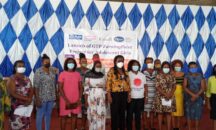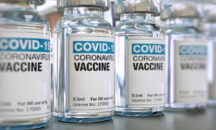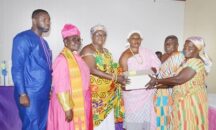‘Don’t shy away from reproductive health issues’
Despite efforts to eliminate stigma associated with the concept of menstruation, it appears some girls and women still feel uncomfortable discussing the subject in homes and relationships.
It is in view of this that stakeholders on adolescent reproductive health insist that the topic should not be avoided.
Ms Rosemary Ardeyfio, a Reproductive Health Initiator, noted that menstruation should be understood as a “part of women and not a punishment”.
She was speaking at a two-day capacity building workshop for Community Based Organisations (CBOs), Community Facilitators, Health Providers and the Media, on improving strategies for engaging adolescents on reproductive health issues.
Ms Ardeyfio was of the view that education on female sexual health could promote communication, lessen stigma and create empathy.
She noted that there should not be any “shame associated with menstruation” as “that will only make it worse for women”.
“Men have a major role to play in normalising menstruation, and understanding the basics is definitely a step in the right direction.
“Adolescent girls should not feel shy to discuss the concept of menstruation with the opposite sex. Parents must also be involved in the conversations,” she said.
The programme, implemented in five areas, is led by the Alliance for Reproductive Health Rights (ARHR) with funding from the United Nations Population Fund (UNFP) and Canadian government.
The areas include Nzema East, Komenda Edina Eguafo Abrem, Ashiedu Keteke sub district, South Dayi and Bosome Freho.
It formed part of a five-year project designed to empower adolescent girls and boys to access reproductive health information and services through advocacy and capacity building.
The ARHR Programme Director, Nii Ankonnu Annorbah-Sarpei, observed that there was the need to improve strategies for engaging adolescents, especially girls who are out of school to ensure they have access to quality health reproductive services.
He said adolescents must recognise each stage of growth and development as a normal part of their lives, to help eliminate misconceptions associated with changes they go through.
Mr Annorbah-Sarpei expressed ARHR’s commitment to help adolescents and their peers with information on healthy reproductive lifestyles.
Dr Esi Awortwi, UNFP Programme Coordinator, called for increased attention to issues that could be detrimental to the general development of adolescent girls.
“Apathy toward issues confronting adolescent girls could expose them to reproductive health risks such as unplanned pregnancies, sexually transmitted infections and other forms of sexual and gender-based violence,” she said.
From Kingsley E. Hope, Kumasi















